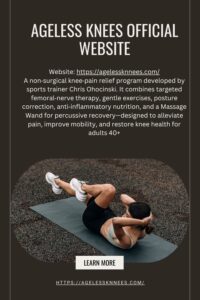Role of AI in Performance Marketing Optimization
Introduction: The Convergence of AI and Marketing Performance
The digital marketing landscape has undergone significant transformation over the past decade. As businesses seek precision, scale, and ROI from their marketing investments, performance marketing has become the go-to strategy for growth-focused brands. In parallel, artificial intelligence (AI) has emerged as a powerful enabler of data-driven decision-making, campaign automation, and customer insight generation. When combined, the Role of AI in Performance Marketing becomes not just complementary but revolutionary—fueling a new era of hyper-personalized, real-time, and results-driven marketing.
In this article, we will explore how AI is shaping the future of performance marketing optimization, the tools and techniques driving this change, and actionable insights for marketers ready to embrace this paradigm shift.
What is Performance Marketing?
Performance marketing is a results-oriented marketing approach where advertisers only pay when a specific action is completed—such as a click, lead, or sale. It spans multiple digital channels, including search engine marketing (SEM), social media advertising, influencer partnerships, and affiliate marketing. What makes performance marketing distinct is its emphasis on measurable outcomes and ROI, demanding both data accuracy and strategic execution.
How AI is Transforming Performance Marketing Optimization
1. Data-Driven Decision Making
AI thrives on data. With performance marketing producing vast volumes of user interaction data across platforms, AI algorithms can process this information to uncover patterns and predict outcomes. Tools powered by machine learning analyze audience behavior, campaign engagement, and conversion metrics in real time. This enables marketers to make smarter decisions faster—eliminating guesswork and reducing waste.
Platforms like Google Ads and Meta’s ad manager already utilize AI to recommend budgets, optimize bids, and suggest audience segments. These recommendations are based on real-time performance and historical data—giving marketers a competitive edge.
2. Predictive Analytics and Budget Allocation
AI models can forecast the performance of various campaign elements—like keywords, creatives, and channels—before full-scale deployment. This predictive capability helps marketers allocate budgets more efficiently by identifying high-converting opportunities early in the funnel.
For instance, predictive lead scoring uses AI to rank leads based on the likelihood of conversion, allowing sales teams to prioritize follow-ups. This is particularly effective in B2B and high-ticket B2C sectors where lead quality is more critical than quantity.
3. Audience Segmentation and Personalization
Traditional segmentation methods rely on demographics or behavior alone. AI introduces micro-segmentation, where users are grouped based on nuanced patterns derived from their digital footprint—search history, site behavior, purchase intent, and more. AI-driven tools like Dynamic Yield and Adobe Experience Cloud offer real-time content personalization based on these patterns.
By tailoring ad creatives, messaging, and CTAs to individual users, AI increases engagement rates and conversion probability, a crucial aspect of optimizing performance marketing campaigns.
4. Automated Campaign Management
AI doesn’t just offer insights—it takes action. AI-based tools can automatically adjust campaign parameters such as ad placements, bidding strategies, and creative testing based on live data. This ensures that underperforming ads are paused while top-performing creatives are prioritized.
For example, platforms like Skai, Albert.ai, and WordStream leverage AI to manage large-scale campaigns, providing automation for tasks like A/B testing, budget reallocation, and keyword optimization—all with minimal human intervention.
5. Enhanced Ad Targeting with Natural Language Processing (NLP)
AI-powered NLP enables marketers to understand the intent behind user queries better than ever. This is especially valuable in search marketing where keyword intent directly impacts ad relevance and Quality Score. NLP helps craft ad copy that resonates with the target audience, optimizing CTR and reducing CPC.
Moreover, NLP tools can analyze user-generated content—such as reviews or social media posts—to extract insights that inform creative messaging and product positioning.
6. Fraud Detection and Campaign Security
Click fraud and bot traffic are persistent threats to performance marketing ROI. AI algorithms trained to detect anomalies in user behavior, location patterns, and traffic sources can flag suspicious activity in real time. This allows marketers to block fraudulent sources, protect their ad spend, and maintain campaign integrity.
Real-World Applications of AI in Performance Marketing
Example 1: eCommerce Campaign Optimization
A leading fashion brand used an AI-powered platform to optimize its Facebook Ads campaigns. By analyzing customer data, the system automatically segmented audiences and tested thousands of creative combinations. As a result, the brand saw a 32% increase in ROAS (Return on Ad Spend) within two months.
Example 2: B2B Lead Generation
A SaaS company used AI for lead scoring and predictive modeling. The system identified high-potential leads and personalized outreach emails based on user behavior. This not only improved conversion rates but also reduced the average cost per lead by 28%.
Challenges and Considerations
Despite its advantages, AI in performance marketing comes with its set of challenges:
- Data Privacy: Compliance with GDPR, CCPA, and other regulations is essential when leveraging user data.
- Black Box Problem: AI models can lack transparency, making it hard to understand why certain decisions are made.
- Over-Reliance: Full automation can lead to missed strategic insights that human marketers bring through creative thinking and industry intuition.
Hence, while AI enhances performance marketing, it should be seen as an augmentation—not a replacement—for human expertise.
Learning AI-Driven Performance Marketing
To stay competitive, marketers need to upskill in AI tools and techniques. Enrolling in a performance marketing course online that covers AI-based tools, automation strategies, and data analytics can be an excellent way to bridge the skill gap.
Look for courses that offer hands-on projects, exposure to real campaign data, and coverage of AI platforms like Google Ads Smart Bidding, Meta Advantage+, and third-party AI ad tools.
Future Trends in AI-Powered Performance Marketing
- Generative AI for Ad Creatives: Tools like ChatGPT and Midjourney are already helping marketers produce ad copy, visuals, and product descriptions at scale.
- Voice Search Integration: AI’s ability to process natural language will be key as voice-driven queries become more common.
- Hyper-Personalization: Real-time behavioral data will enable one-to-one marketing at scale.
- AI-Powered Chatbots for Conversion: More brands will deploy chatbots that engage users and drive conversions directly from ads.
Conclusion: The Strategic Role of AI in Performance Marketing
The Role of AI in Performance Marketing is not a trend—it’s a tectonic shift. AI empowers marketers with speed, accuracy, and scalability, transforming how campaigns are planned, executed, and optimized. From predictive analytics to dynamic personalization, AI-driven performance marketing unlocks unprecedented levels of efficiency and ROI.
However, success lies in the strategic fusion of machine intelligence with human creativity and ethical responsibility. As AI continues to evolve, those who adapt early will not only outperform their competition but also future-proof their marketing strategy.














Post Comment